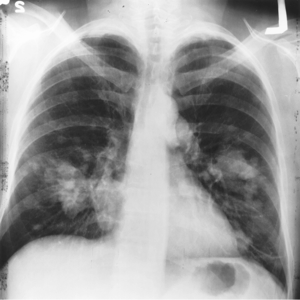addAbout DECAMP 1 & 2
The Detection of Early lung Cancer Among Military Personnel (DECAMP) consortium is a multidisciplinary and translational research program that includes Veterans Administration hospitals, military treatment facilities, and academic hospitals as clinical study sites.
DECAMP 1 and 2, which began in 2013 and 2015, respectively, aim to improve early detection of lung cancer through noninvasive biomarkers and improved screening.
DECAMP-1 PLUS is the third and latest study initiated by the DECAMP consortium.

addDECAMP 1 & 2
DECAMP 1
DECAMP-1: Diagnosis and Surveillance of Indeterminate Pulmonary Nodules is being carried out so that doctors will understand the ability of different types of biospecimen (ie, blood, cells, tissue, urine) tests to predict if an indeterminate lung nodule is benign (noncancerous) or will eventually be found to be malignant (cancerous). Study participants are receiving standard-of-care clinical examinations, workups, and imaging scans to follow their condition, in addition to submitting biospecimens for testing. The results of the tests are being compared with each study participant's final diagnosis. As in all of the DECAMP studies, this information may be used by doctors to help patients in the future by using biomarkers, measurable biological markers that point to the presence or absence of a disease or bodily change, to predict or diagnose lung cancer at an early stage.
DECAMP 1 has recruited 500 smokers with indeterminate lung nodules (0.7cm - 3.0cm in size) seen on imaging scans. These people are being followed for two years until a final diagnosis is made. The diagnostic performance of four previously established lung cancer biomarkers will be validated. These include:
- A gene-expression biomarker measured in bronchial airway brushings;
- A proteomic signature measured in bronchial airway biopsies
- A proteomic signature measured in serum
- A signature of serum cytokines
The hope is that one day one or more of these biomarkers could be used in the diagnostic workup of patients with indeterminate lung nodules so that lung cancer could be predicted and treated at the earliest stage possible.
DECAMP 2
The goal of DECAMP-2: Screening of Patients With Early Stage Lung Cancer or at High Risk for Developing Lung Cancer is to improve lung cancer screening in people at high risk for lung cancer by identifying biomarkers of preclinical disease and disease risk that are derived from both invasive and noninvasive biospecimens (ie, blood, other body fluids, tissue). Existing biomarkers for lung cancer diagnosis as well as new biomarkers discovered during the study will be examined.
The study has enrolled more than 560 participants who currently or historically smoked and who are at a 10-year risk of developing lung cancer, based on a proven model. Participants have either chronic obstructive pulmonary disease/emphysema or at least one first-degree relative with a diagnosis of lung cancer. The participants are being followed for up to four years.
Biomarkers that identify people at highest risk for being diagnosed with lung cancer prior to the appearance of concerning symptoms could increase the utility of lung cancer surveillance (monitoring) and the efficiency of lung cancer clinical trials studying preventive chemotherapy for people at high risk of the disease.
Study sponsorship and conduct
DECAMP 1 and 2 are funded through the Department of Defense Lung Cancer Research Program, Johnson and Johnson Inc., and Novartis Biomedical Research Institutes, and conducted by Boston University in collaboration with the American College of Radiology.